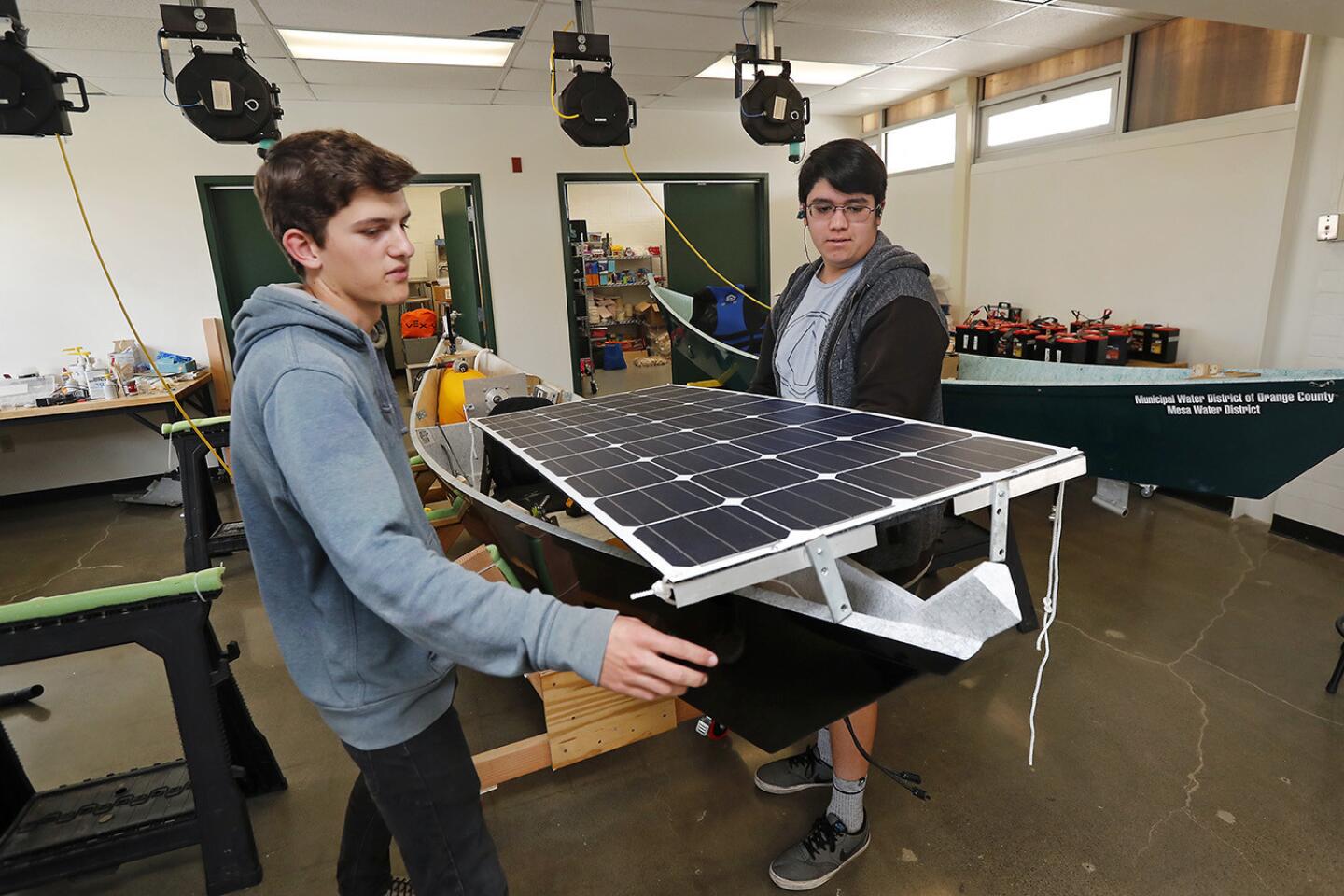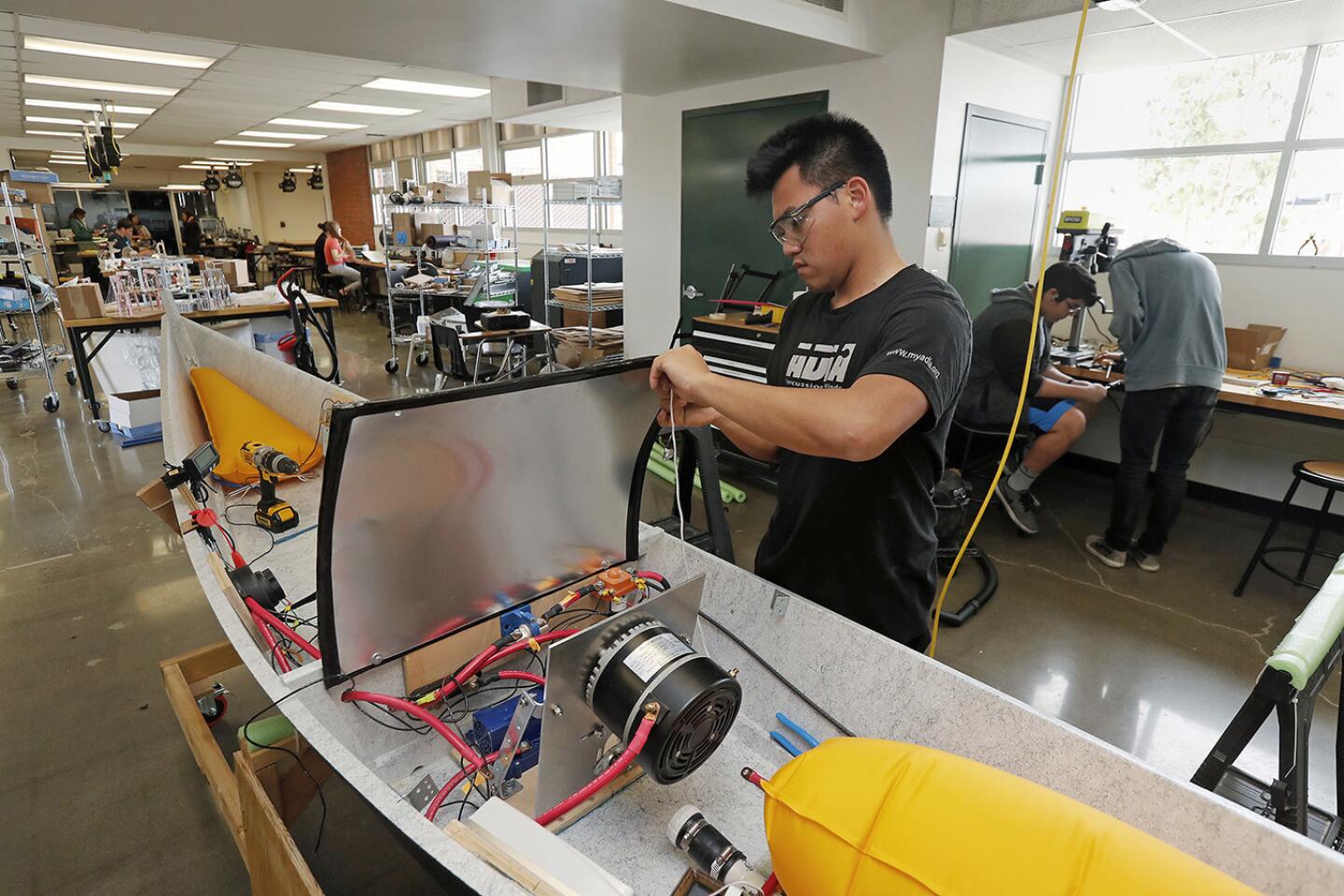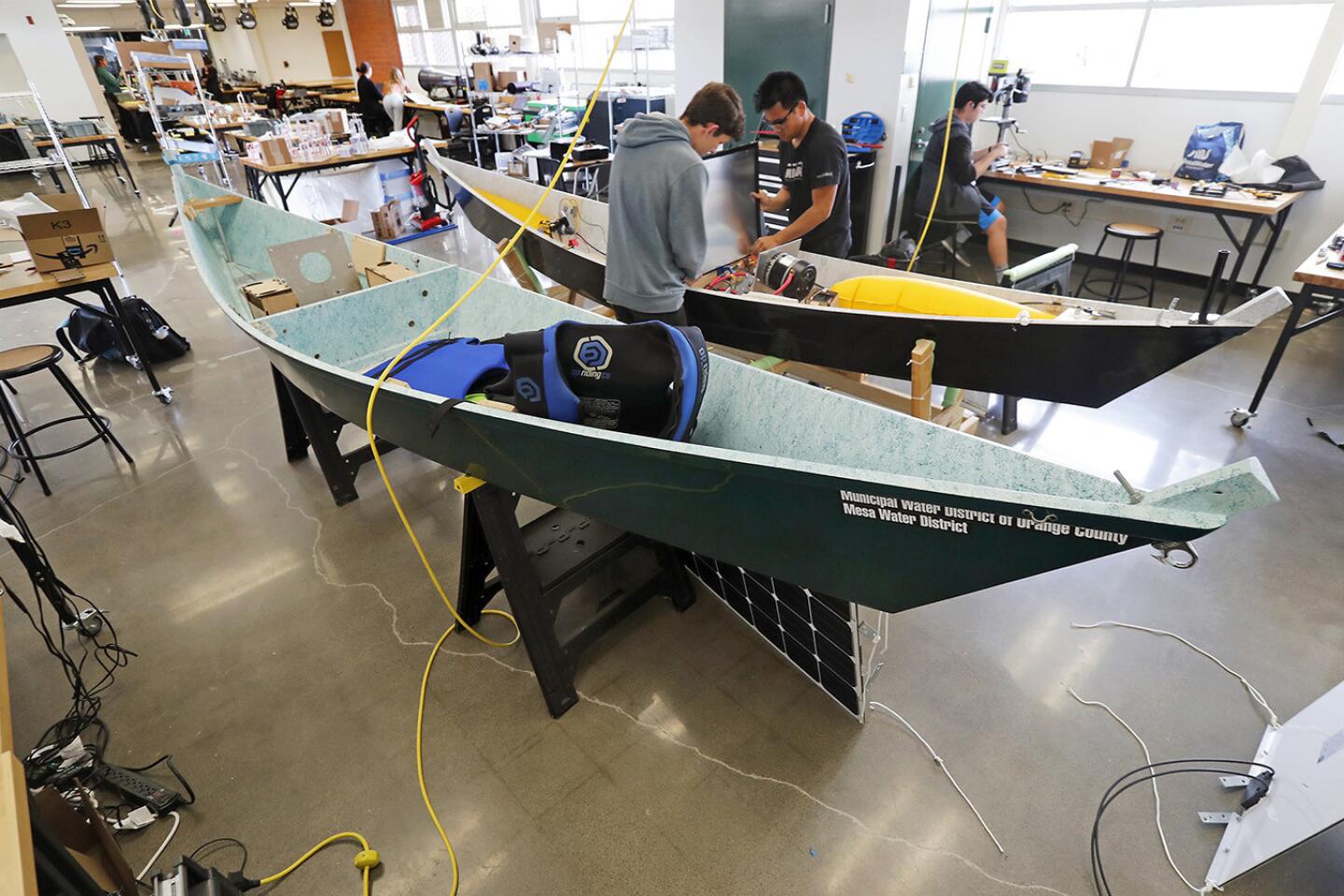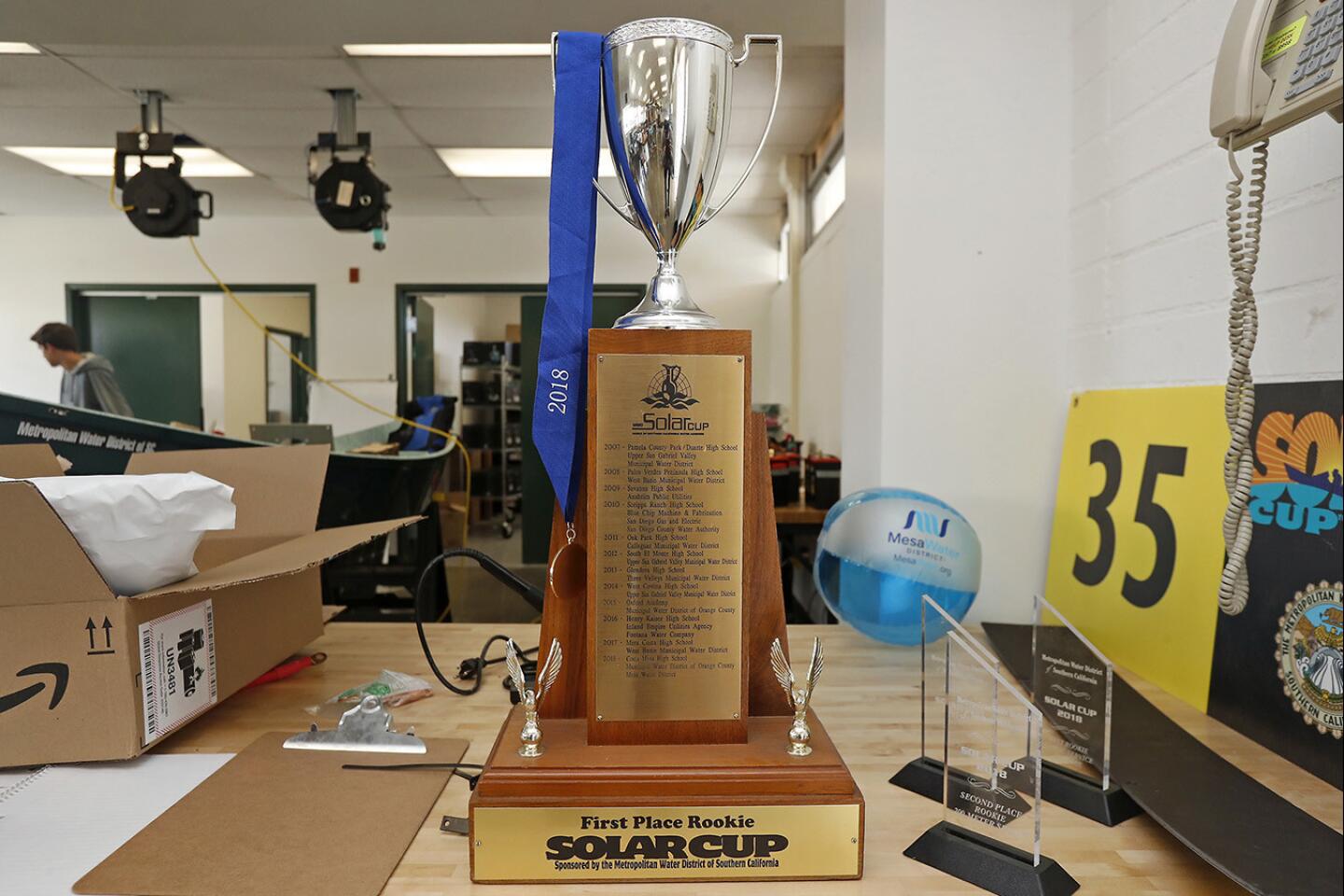Costa Mesa High School works to get solar-powered boat shipshape for Solar Cup
- Share via
Students from Costa Mesa High School are preparing to ship out to Lake Skinner this month for the Metropolitan Water District of Southern California’s annual Solar Cup.
The three-day educational competition is scheduled for May 17-19 in Temecula Valley, where students will be challenged to test the endurance and speed of their self-made solar-powered boats.
The first day will have qualifying rounds to ensure the boats meet requirements and can be maneuvered in the water. The second day features an endurance test in which students will see how many laps around the lake they can complete. The final day is “sprint day,” which is basically a drag race, said program director Julie Miller-Kalbacher.
This year’s theme is “It’s a SoCal Thing: Conserve Water Every Day, 365.”
Costa Mesa High is the only school from the Newport-Mesa Unified School District competing this year. It won first place in the rookie division last year and will be competing against 41 other teams this year, if the boat qualifies.
The students are being sponsored by the Mesa Water District, which gave $2,500 — down from the $4,000 the Solar Cup allows for rookie teams — to pay for everything on the boat, except for paint and some electrical cables that were donated by Kozwel Boatworks of Santa Ana.
The Costa Mesa High School Foundation helped pay for non-boat-related items such as tools and safety equipment.
Students have been working on their boats since November, according to team advisors Racine Cross and Karen Upthegrove. On Tuesday, the Costa Mesa team, made up of juniors and seniors, was still installing electrical components such as the battery and solar panels.
The boat will be inspected by the Metropolitan Water District this weekend, and the team will have about two weeks to resolve any issues before the competition begins.
“Last year at this time, our boat was not working. So we were headed into inspection without a working boat,” said Cross, who teaches engineering. “We weren’t even sure we were going to make it, and we pulled it off and we ended up doing really well.”
Upthegrove, who teaches marine science, said “the best thing about this boat and the most frustrating thing about the boat” was a lack of instructions on how to prepare it.
“We’re just given requirements for what your boat needs to accomplish,” she said. “So [the team] had to figure out, ‘OK, I got a motor. How do I attach a motor to a canoe?’ It really is just an experience with them kind of creatively thinking how to do things, whereas most other classes, they’re given instructions for how to do stuff. But nobody gave us any instructions on how to do anything.”
Rachael Kricorian, a senior and first-year participant, said she heard about the Solar Cup by accident last year. While waiting for help with a problem for her Advanced Placement Calculus A/B class, Kricorian saw last year’s team and Cross working on the boat.
She ended up putting down her textbooks and backpack to help carry the boat into the pool, where the team was going to test it. She said she thought it was “super interesting” and was recruited the following year for her skills with video and editing. She was responsible for creating a 60-second public service announcement about water conservation that is an additional, off-boat aspect of the Solar Cup.
Cameron Kutz, a junior and second-year competitor, is the primary skipper for the team and will be driving the boat during the competition.
“My favorite part is the sprint race, because after the endurance race — sitting in the boat for hours going slowly — it’s fun to finally go fast,” he said. “We learned a lot [from last year] in general about the boat and how to make it better.”
The Metropolitan Water District began presenting the competition in 2002 after then-Chairman Phillip Pace and then-General Manager Ron Gastelum saw a solar boat competition while attending a conference in Tempe, Ariz. At the time, the water district was preparing to open Diamond Valley Lake in Riverside County, Miller-Kalbacher said.
“We thought it would be great if we could do clean recreation … because it would require less treatment [of the water]. A competition like this would show that folks can move and we don’t need gas,” she said. “We could run on battery and solar power.”
Support our coverage by becoming a digital subscriber.
All the latest on Orange County from Orange County.
Get our free TimesOC newsletter.
You may occasionally receive promotional content from the Daily Pilot.















